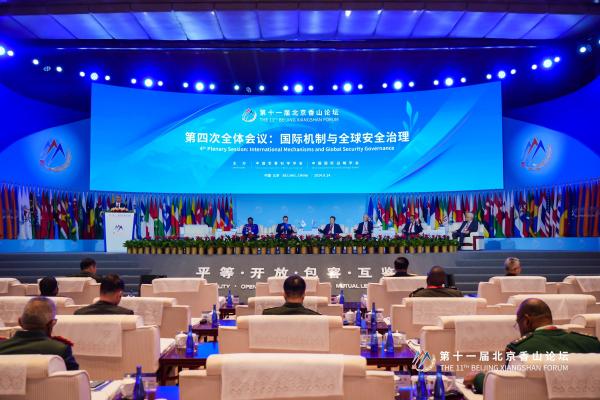
Excellencies, ladies and gentlemen,
What can States do to ensure greater respect for international humanitarian law?
What can you do to ensure that the most vulnerable are effectively protected and assisted? We make two calls in this regard:
- First, demonstrate leadership to ensure compliance with international humanitarian law, making this a political priority.
- Second, allow neutral and impartial humanitarian organizations to effectively assist and protect people affected by armed conflict.
Through the Geneva Conventions, states have universally committed to respect and ensure respect for IHL. In today’s polarized context, states have to take a leading role in ensuring IHL compliance. In May this year, the UN Security Council hosted its annual Debate on the Protection of Civilians. Well over one hundred States referred to the critical importance of complying with IHL. So the humanitarian imperative is clear. But, in practice, what does IHL compliance look like?
At the domestic level, it begins with States ratifying all key IHL treaties and anchoring their obligations in domestic legislation. These legal commitments must be then integrated into military doctrine and training curricula, in rules of engagement as well as in practical military exercises. States must also ensure that IHL is integrated in the military justice systems, and that sanctions are taken in case of grave violations of IHL, thus sending clear signals across military chains of command. It is also essential to regularly review IHL compliance, notably through national IHL committees. You can count on us to assist you in this endeavour: through our offices worldwide, the ICRC remains fully committed to supporting all states in this regard.
At the international level, ensuring respect for IHL requires making compliance a foreign policy and security policy priority. States can – and often do – exert a positive influence by requiring that their allies, partners and proxies abide by IHL as part of their diplomatic, military and financial support to parties to armed conflict.
Our second call is for States to preserve the space for neutral and impartial humanitarian action. When one of our ambulances or vehicles travels through contested territory or passes through checkpoints, it is not protected by weapons nor escorted by armed forces. The security of our staff relies on the trust that warring parties have in the ICRC as a strictly neutral, impartial and independent humanitarian organization. In sum, being able to provide life-saving relief to civilians in war depends on the perception of impartiality and neutrality of humanitarian actors. But when social media falsely report that the ICRC is taking sides, or falsely allege that we neglect one group in favour of another for political reasons, the safety and access of staff in the field is jeopardized. And, in the end, those who suffer are vulnerable people who are deprived of humanitarian assistance and protection.
On this point, IHL is very clear: parties to an armed conflict are obliged to allow and facilitate the rapid and unimpeded passage of impartial humanitarian relief for civilians in need. But today, how can we persuade malicious actors not to circulate false information? This is where the ICRC relies on you, as High Contracting Parties to the Geneva Conventions, to counteract misinformation and disinformation against our humanitarian mission, as well as hate speech that fuels IHL violations. It is in the best interest of all parties to the Geneva Conventions to ensure that neutral and impartial humanitarian organizations are able to care for civilians, the missing and their families, as well as those injured and held hostage or prisoner.
Excellencies, ladies and gentlemen,
Let me conclude by saying that the Geneva Conventions have proven their enduring relevance. Today, the world needs leaders in international humanitarian law to show the way forward. We need everyone – big powers and small States alike – to step up and make IHL implementation a priority, ensuring compliance with the letter and the spirit of the law in all armed conflicts, worldwide.
We acknowledge Source link for the information.



